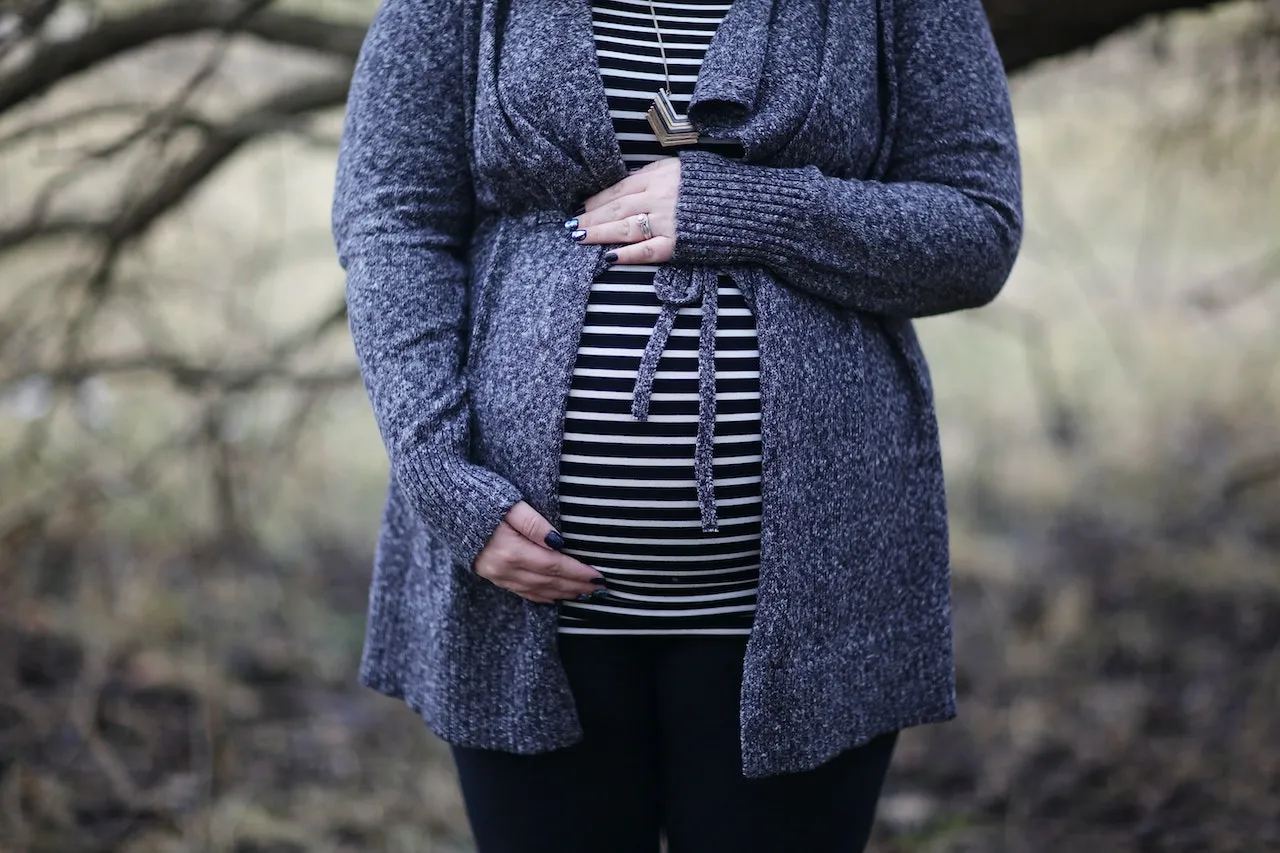Key Takeaways
- While nursing, health authorities recommend reducing your intake of caffeine, alcohol, some herbal supplements, high-mercury fish, and ultra-processed foods.
- Remember that your baby is resilient, and if you drink one cup of coffee, it shouldn’t affect their development.
- For more nutrition support, consider working with a registered dietitian.
While breastfeeding (or chestfeeding), you will have higher energy requirements and need to eat more foods with iron, calcium, iodine, and choline.
In addition to eating nutrient-dense foods, you may continue taking your prenatal supplement while breastfeeding for added nutrition.
There are also some foods and beverages you may want to avoid while breastfeeding your baby.
Keep reading to learn what the science says about diet and breastfeeding, and learn how working with a dietitian can help you and your baby thrive.
{{splash}}
Caffeine
Caffeinated products include sodas, energy drinks, chocolate, coffee, and some teas.
Caffeine can pass through your milk to your baby in small amounts, but it doesn’t appear to have adverse health effects if the mother consumes low amounts of caffeine.
For context, the Centers for Disease Control and Prevention (CDC) defines a low caffeine intake as 300mg or less daily (approximately 2-3 cups of drip coffee).
Contrastingly, drinking 10+ cups of coffee daily is considered a very high intake, and a breastfed baby can be more irritable and fussy if the mother consumes this amount of caffeine.
If this sounds like you, consider weaning your coffee intake to low levels.
Some women may choose to avoid caffeinated products altogether while breastfeeding—it’s a personal decision.
Alcohol
Exposing your baby to high alcohol levels via breast milk can be harmful and may stunt their development.
US health authorities recommend that mothers who are nursing avoid all alcohol intake.
For people who want to drink (maybe you have a celebration or special event lined up), the CDC states that consuming one alcoholic beverage daily hasn’t been linked to any adverse outcomes.
However, the alcohol concentration in breast milk will be highest 30-60 minutes after drinking.
If you choose to have one drink—the CDC recommends waiting two hours until you breastfeed your baby again.
Some Herbal Supplements
Most people can safely consume fresh herbs while breastfeeding (unless they have an allergy), but concentrated herbal supplements should be reviewed by a doctor prior to use.
Some herbal supplements claim to increase milk supply or have other post-natal benefits (like helping with hair thinning).
However, many of these products aren’t evidence-based and haven’t been FDA-approved.
It’s wise to ask your doctor about any type of supplement before you start taking them to ensure they’re safe to consume while breastfeeding.
Fish High in Mercury
Large, predatory fish are likelier to accumulate heavy metals in their flesh and skin, potentially exposing you to these harmful substances after eating them.
For this reason, it’s recommended that everyone avoid eating fish and seafood that are high in mercury, including anyone who is breastfeeding.
Although it’s unlikely your baby will be exposed to dangerous levels (it appears only tiny amounts of mercury can go into breastmilk), it’s still wise to choose other fish that are lower risk.
The CDC defines these species as “high-risk” fish:
- Shark.
- Swordfish.
- King mackerel.
- Orange roughy.
- Tilefish (from the Gulf of Mexico).
- Bigeye tuna.
- Marlin
The CDC suggests choosing “best choice” fish more often:
- Anchovy.
- Herring.
- Scallop.
- Salmon.
- Flounder.
- Haddock.
- Shrimp.
- Tilapia.
- Freshwater trout.
{{local}}
Ultra-Processed Foods
Ultra-processed foods (UPFs) contain higher amounts of fat, added sugars, and salt—and low amounts of fiber, vitamins and minerals.
While breastfeeding, your nutrient needs are higher than normal, so choosing nutritious foods makes it easier to keep up with your daily vitamin and mineral requirements.
Instead of UPFs, try eating more whole, minimally processed foods.
This includes fresh, frozen, or canned produce (pick unsalted vegetables or unsweetened fruits), lean proteins, and whole grains.
Consuming fewer UPFs extends to your beverage choices as well.
Drink plain water instead of sugar-sweetened beverages throughout the day to stay hydrated.
If plain water sounds unappealing, enhance its flavor by adding fruits, vegetables, or herbs (combining mint, pineapple, and ginger root is a refreshing blend!).
Taking Care of Yourself
We know that having a newborn is a lot of work and can come with unexpected costs.
If you rely on UPFs to feed your family—that’s OK.
Having regular access to food is the first step in taking care of yourself.
The next step is finding ways to add more nutritious options to your weekly menu.
A dietitian can help you do that by teaching you how to eat well while sticking to your budget.
How Foods Can Affect Your Breast Milk and Your Baby
Some foods may impact the flavor of your breast milk, but it’s unlikely they will dissuade your baby from feeding.
Interestingly, pungent foods like fresh garlic may enhance your baby’s interest in breastmilk (researchers think babies like the flavor—but more studies are needed).
Other foods reported to affect breast milk, like cruciferous vegetables or spicy foods, have been debunked, and if you want to eat them—you can.
If you have any concerns about your baby’s intake or nutritional status, follow up with your pediatrician or personal doctor for guidance.
You are probably doing better than you think, but visiting your healthcare provider for reassurance never hurts.
How to Eat and Drink to Increase Milk Supply
Eating a nutritionally balanced diet and staying hydrated can support lactation.
We’ve done extensive research to see what drinks can help increase breast milk supply, and the following options are excellent choices:
- Water.
- Some herbal teas (talk to your doctor first).
- Refreshing green juices and smoothies.
- Coconut water (unsweetened).
For more evidence-based information on increasing milk supply and developing a consistent feeding schedule, consider booking an appointment with a registered dietitian.
Tips for Balancing a Healthy Diet while Breastfeeding
Your body needs more energy and nutrients while you’re breastfeeding.
This helps you stay healthy and well-nourished and may help you keep up your milk supply.
The CDC recommends having an extra 300-400 calories daily compared to your pre-pregnancy intake.
This may be satisfied by eating a couple of extra snacks or having one additional small meal.
Some tips to help you eat well include:
- Having as much variety as possible. That way, you’ll consume different nutrients to help you meet your daily needs.
- Choose iodine-rich foods like eggs, dairy products, seafood, and iodized sea salt.
- Choose choline-rich foods like dairy products, meats, eggs, legumes, and some seafood.
- Eat more iron-rich foods like lean red meats, beans, fortified grains,
- Ask your family or friends to help you prepare meals or buy easy-to-eat foods like pre-cut fruits, vegetables, and other snacks.
- Consider using online grocery services to make it easier for you to keep your fridge and pantry stocked.
{{splash}}
Takeaway
You may want to limit your intake of foods and beverages while breastfeeding—specifically caffeinated products, alcoholic drinks, ultra-processed foods, some herbal supplements, and high-mercury fish.
Instead, choose whole, minimally processed options as often as possible.
It’s important that you get enough energy and nutrients from food to recover after delivering your baby and stay energized.
If you have any concerns about your nutritional intake, consider working with a registered dietitian.
They’re nutrition experts that will help you and your baby thrive.
How a Dietitian Can Help
Having a baby is exciting, but there is a lot to learn! Working with a registered dietitian specializing in lactation and breastfeeding can help you build confidence as you care for your newest family member.
At Nourish, every dietitian offers online counseling that’s covered by insurance.
During your appointment, you’ll receive nutrition education and a personalized care plan to follow between visits.
For more support, you can also download Nourish’s app.
It’s filled with additional free resources and helps you stay connected with your dietitian.
Find a dietitian through Nourish today.
Do you have any of these insurances?
Why Join Nourish's RD Network






Frequently Asked Questions
It’s difficult to predict what foods will upset your baby—their organs and digestive system are constantly developing and experiencing many foods for the first time ever!
If your baby stops gaining weight or stops having bowel movements, you should visit your doctor for an assessment.
Health authorities suggest limiting your intake of these foods while breastfeeding:
- Caffeinated products.
- Alcohol.
- High-mercury fish.
You should also speak with your doctor before starting any herbal supplements.
Additionally, meeting your vitamin and mineral requirements might be easier by choosing whole foods (over ultra-processed foods) more often.
Currently, there isn’t evidence that shows the foods you eat will make your baby gassy.
However, every baby is unique—and if you suspect your diet is making your baby gassy, ask your dietitian to review your diet and your baby’s symptoms after nursing.






























